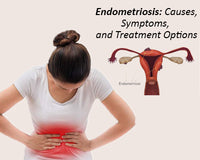There are several medications that may be recommended for women with polycystic ovarian syndrome (PCOS), depending on their specific symptoms and health needs. Some commonly used medications for PCOS include:
1. Biosol Powder: Pea Protein with Myoinositol & Melatonin sugar-free (Generic Name)
Myo-inositol and melatonin are two natural supplements that have potential benefits in women with polycystic ovarian syndrome (PCOS). Here's how they may help:
1. Myo-inositol: Myo-inositol is a type of sugar that is found naturally in the body and in some foods. Myo-inositol supplementation helps improve insulin resistance and regulate menstrual cycles in women with PCOS. It also improves egg quality and increases the chances of pregnancy in women undergoing fertility treatment.
2. Melatonin: Melatonin is a hormone that is involved in regulating sleep and wake cycles. It also has a role in regulating reproductive hormones and menstrual cycles. Melatonin supplementation helps improve insulin resistance and reduce inflammation in women with PCOS. It also improves egg quality and increases the chances of pregnancy in women undergoing fertility treatment.
2.BIOPHIL-Q: Coenzyme Q 10 (Generic Name)
Coenzyme Q10 (CoQ10) is a naturally occurring substance found in the body that plays a role in producing energy within cells. CoQ10 supplementation have potential benefits for women with polycystic ovarian syndrome (PCOS). Here's how it may help:
1. Improved fertility: CoQ10 help improve egg quality and increase the chances of pregnancy in women with PCOS who are undergoing fertility treatment.
2. Reduced inflammation: Women with PCOS often have higher levels of inflammation in their bodies, which can contribute to insulin resistance and other complications. CoQ10 has antioxidant properties that help reduce inflammation and improve insulin sensitivity.
3. Lowered oxidative stress: Oxidative stress is a condition in which there is an imbalance between the production of harmful molecules called free radicals and the body's ability to neutralize them. This can contribute to inflammation and other health problems. CoQ10 supplementation helps reduce oxidative stress and protect against cellular damage.
3.Biophil-O3 (Omega 3 FA)
Omega-3 fatty acids are a type of healthy fat that is found in certain foods, such as fatty fish and nuts, and can also be taken as a dietary supplement. Omega-3 fatty acids have potential benefits in women with polycystic ovarian syndrome (PCOS). Here's how they may help:
1. Improved insulin sensitivity: Omega-3 fatty acids help improve insulin sensitivity in women with PCOS, which can help regulate menstrual cycles and reduce the risk of developing type 2 diabetes.
2. Reduced inflammation: Women with PCOS often have higher levels of inflammation in their bodies, which can contribute to insulin resistance and other complications. Omega-3 fatty acids have anti-inflammatory properties that help reduce inflammation and improve insulin sensitivity.
3. Improved lipid profile: Women with PCOS often have abnormal lipid levels, including high levels of triglycerides and low levels of HDL cholesterol. Omega-3 fatty acids help improve the lipid profile and reduce the risk of cardiovascular disease.
4. Improved fertility: Omega-3 fatty acids may help improve egg quality and increase the chances of pregnancy in women with PCOS who are undergoing fertility treatment.
4. Biolarg: L-Arginine (Generic Name)Top of Form
L-arginine is an amino acid that is involved in many processes within the body, including the production of nitric oxide, a molecule that helps dilate blood vessels and improve blood flow. L-arginine has potential benefits in women with polycystic ovarian syndrome (PCOS). Here's how it may help:
1. Improved insulin sensitivity: L-arginine help improve insulin sensitivity in women with PCOS, which can help regulate menstrual cycles and reduce the risk of developing type 2 diabetes.
2. Reduced inflammation: Women with PCOS often have higher levels of inflammation in their bodies, which can contribute to insulin resistance and other complications. L-arginine has anti-inflammatory properties that help reduce inflammation and improve insulin sensitivity.
3. Improved lipid profile: Women with PCOS often have abnormal lipid levels, including high levels of triglycerides and low levels of HDL cholesterol. L-arginine help improve the lipid profile and reduce the risk of cardiovascular disease.
4. Improved fertility: L-arginine help improve ovarian function and increase the chances of pregnancy in women with PCOS who are undergoing fertility treatment.
FAQs
Q1. What is PCOS?
PCOS is a hormonal disorder that affects women of reproductive age. It is characterized by irregular menstrual periods, excess androgen hormones, and polycystic ovaries.
Q2. What are the symptoms of PCOS?
Symptoms of PCOS can include irregular menstrual periods, excess androgen hormones, polycystic ovaries, insulin resistance, weight gain, fatigue, and mood changes.
Q3. How is PCOS diagnosed?
PCOS is typically diagnosed through a combination of a physical exam, blood tests, and an ultrasound to check for ovarian cysts.
Q4.What are the treatment options for PCOS?
Treatment for PCOS may include lifestyle changes such as diet and exercise, medications to regulate menstrual periods and reduce androgen levels, and fertility treatments for women who are trying to conceive.
Q5. Can women with PCOS get pregnant?
Yes, women with PCOS can get pregnant, although they may need fertility treatments to do so.






